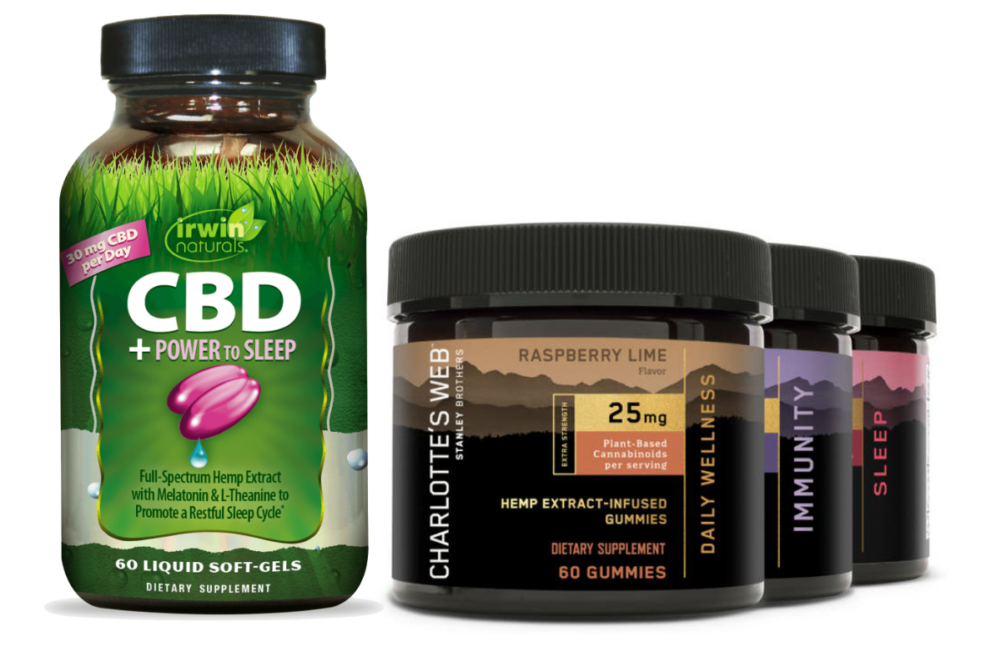LAS VEGAS — Clarity could come in the cannabidiol (CBD) category if the US Food and Drug Administration ever approves its use in foods, beverages and dietary supplements. However, even if federal regulation occurs, expect more questions to arise. Other kinds of cannabinoids besides CBD could become popular as research focuses on their benefits, and beverage packaging choices could impact CBD levels in products.
The FDA bans the use of CBD in foods, beverages and dietary supplements since it is found in a drug called Epidiolex. Some states allow CBD, but federal regulation could define how products are made, how they are packaged, how they are sold and how much CBD could be allowed in products, said Kyle Einhorn, vice president of sales for HempRise, LLC, Jeffersonville, Ind. Such action could lead to more consistent supply and quality, he added.
“Most industries don’t want government intervention, but this industry really needs government intervention,” he said at SupplySide West, where HempRise was exhibiting Oct. 27-28 in Las Vegas.
HempRise, a business of Layn Corp., extracts CBD and other cannabinoids at a 100,000-square-foot facility in Jeffersonville. Mr. Einhorn expressed hope in HR 841, a bill introduced in the US House of Representatives in February by Kurt Schrader of Oregon. The bill allows the use of hemp, cannabidiol (i.e., CBD) derived from hemp, or any other ingredient derived from hemp in a dietary supplement, provided that the supplement meets other applicable requirements.
"In the non-THC market, our perspective is CBD ran the first leg of the race, but it’s not the end of the race. It is the start of the race."
— Dave Neundorfer, Open Book Extracts
The bill does not address foods and beverages. Big brands in the beverage category are staying away from the CBD category because no clear regulatory guidance exists, said Andy Dratt, executive vice president and chief commercial officer of Imbibe, a beverage innovation company based in Niles, Ill.
“You’re not really seeing the big players because they’re not willing to take the risk,” he said in a SupplySide West session on functional beverages. “They’re getting ready.”
Open Book Extracts, Roxboro, NC, also awaits potential FDA legislation.
“In the meantime, we are self-regulating at a standard that we are guaranteeing is going to be higher than whatever standard is laid out,” said Dave Neundorfer, chief executive officer, in an Open Book Extracts’ breakfast session at SupplySide West.
Nicole Brown, chief innovation officer for Open Book Extracts, pointed out the FDA in July rejected efforts by Charlotte’s Web and Irwin Naturals to market their respective full-spectrum hemp extracts as dietary supplements. Besides noting that CBD is approved for use in Epidiolex, the FDA in letters to the companies added it had concerns about the adequacy of safety evidence the companies provided.
“The FDA is looking for additional data,” Ms. Brown said. “They want to truly understand product safety and toxicity levels.”
She said state laws on CBD have impressed her.
“If you’re looking for what might be that crystal ball for the future of federal legislation, we think a lot of these states were getting it right,” she said.
Open Book Extracts researches cannabinoids. Sixty-six elements in the cannabis plant are classified as cannabinoids, Ms. Brown said.
“CBD and THC (tetrahydrocannabinol) are certainly the most recognized,” she said. “However, these are not the only gifts we get from this plant (Cannabis sativa).”
THC is the active compound in marijuana.
“In the non-THC market, our perspective is CBD ran the first leg of the race, but it’s not the end of the race,” Mr. Neundorfer said. “It is the start of the race.”
Some of the other cannabinoids are cannibichromene (CBC), cannabicyclol (CBL) and cannabielsolin (CBE). Mr. Neundorfer gave further details on CBC, which offers anti-inflammatory benefits. Open Book Extracts wants to make CBC more stable and gain more control over its release into the body, perhaps being able to offer a quick release of 30 minutes or longer releases of 12 hours or 24 hours.
Research discoveries should continue in CBD as well. Companies working with CBD should be ready for problems they are not aware of yet, Mr. Dratt said. He gave the example of Imbibe working with a company on a CBD-containing beverage. The level of CBD fell significantly once the drink was placed in a can. The liner in the can was pulling the CBD out of the beverage, and the CBD was adhering to the side of a can.
Companies experienced in CBD should have an advantage in the still murky CBD category.
“When it comes to CBD, brand trust is absolutely essential,” said Lynn Dornblaser, director of innovation and insight at Mintel, in the SupplySide West beverage session. “Consumers are most interested in buying products that have CBD from companies that specialize in CBD because they trust them a little bit more to do it right.”





